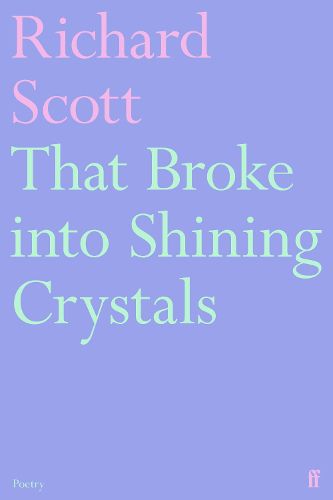Readings Newsletter
Become a Readings Member to make your shopping experience even easier.
Sign in or sign up for free!
You’re not far away from qualifying for FREE standard shipping within Australia
You’ve qualified for FREE standard shipping within Australia
The cart is loading…






POETRY BOOK SOCIETY CHOICE
Reverberating with risk, this collection negotiates the darkness of injury, the potency and pain of revelation, and agency as song.
For years I had no sound but his sweetness, his lye.
Thus I go slow. I song last. Least. The lower.
That which I had nor sound I may still song.
Trauma and vulnerability - violation and its aftershock - are explored within a framework of self-determination and radical queerness in Richard Scott's second collection. In three distinct yet interlocking parts, he documents what it is to have survived 'seismic assaults, the buried silences'. This is first pursued through still-life paintings, controlled arrangements in which time is frozen. In 'Coy', the lexicon of Andrew Marvell's 'To His Coy Mistress' is repurposed to enact the collapse of language under the strain of description, punctuated by scalding direct statement. In the luminous title sequence, crystals and gemstones evoke themes of fracture and fixative, demonstrating Scott's power as a poet who casts an uncompromising but ultimately uplifting light.
'A luminous, uneasily beautiful set of poems.' Rebecca Tamas, Guardian (Best Recent Poetry roundup)
Praise for Soho:
'Scott's project is as political as it is personal, and the kaleidoscopic picture of contemporary queerness he builds through these poems is as urgent as it is alluring.' A. K. Blakemore, Poetry London
'With his electric Soho, Richard Scott has arrived like a lightning bolt in our midst. In poetry that moves so fast we're left breathless, this is protean, irreverent, urgent work.' Sinad Morrissey, T. S. Eliot Prize judge
'Richard Scott's Soho is the most gripping portrayal of queer lives I've read so far.' Daljit Nagra, Guardian
$9.00 standard shipping within Australia
FREE standard shipping within Australia for orders over $100.00
Express & International shipping calculated at checkout
POETRY BOOK SOCIETY CHOICE
Reverberating with risk, this collection negotiates the darkness of injury, the potency and pain of revelation, and agency as song.
For years I had no sound but his sweetness, his lye.
Thus I go slow. I song last. Least. The lower.
That which I had nor sound I may still song.
Trauma and vulnerability - violation and its aftershock - are explored within a framework of self-determination and radical queerness in Richard Scott's second collection. In three distinct yet interlocking parts, he documents what it is to have survived 'seismic assaults, the buried silences'. This is first pursued through still-life paintings, controlled arrangements in which time is frozen. In 'Coy', the lexicon of Andrew Marvell's 'To His Coy Mistress' is repurposed to enact the collapse of language under the strain of description, punctuated by scalding direct statement. In the luminous title sequence, crystals and gemstones evoke themes of fracture and fixative, demonstrating Scott's power as a poet who casts an uncompromising but ultimately uplifting light.
'A luminous, uneasily beautiful set of poems.' Rebecca Tamas, Guardian (Best Recent Poetry roundup)
Praise for Soho:
'Scott's project is as political as it is personal, and the kaleidoscopic picture of contemporary queerness he builds through these poems is as urgent as it is alluring.' A. K. Blakemore, Poetry London
'With his electric Soho, Richard Scott has arrived like a lightning bolt in our midst. In poetry that moves so fast we're left breathless, this is protean, irreverent, urgent work.' Sinad Morrissey, T. S. Eliot Prize judge
'Richard Scott's Soho is the most gripping portrayal of queer lives I've read so far.' Daljit Nagra, Guardian